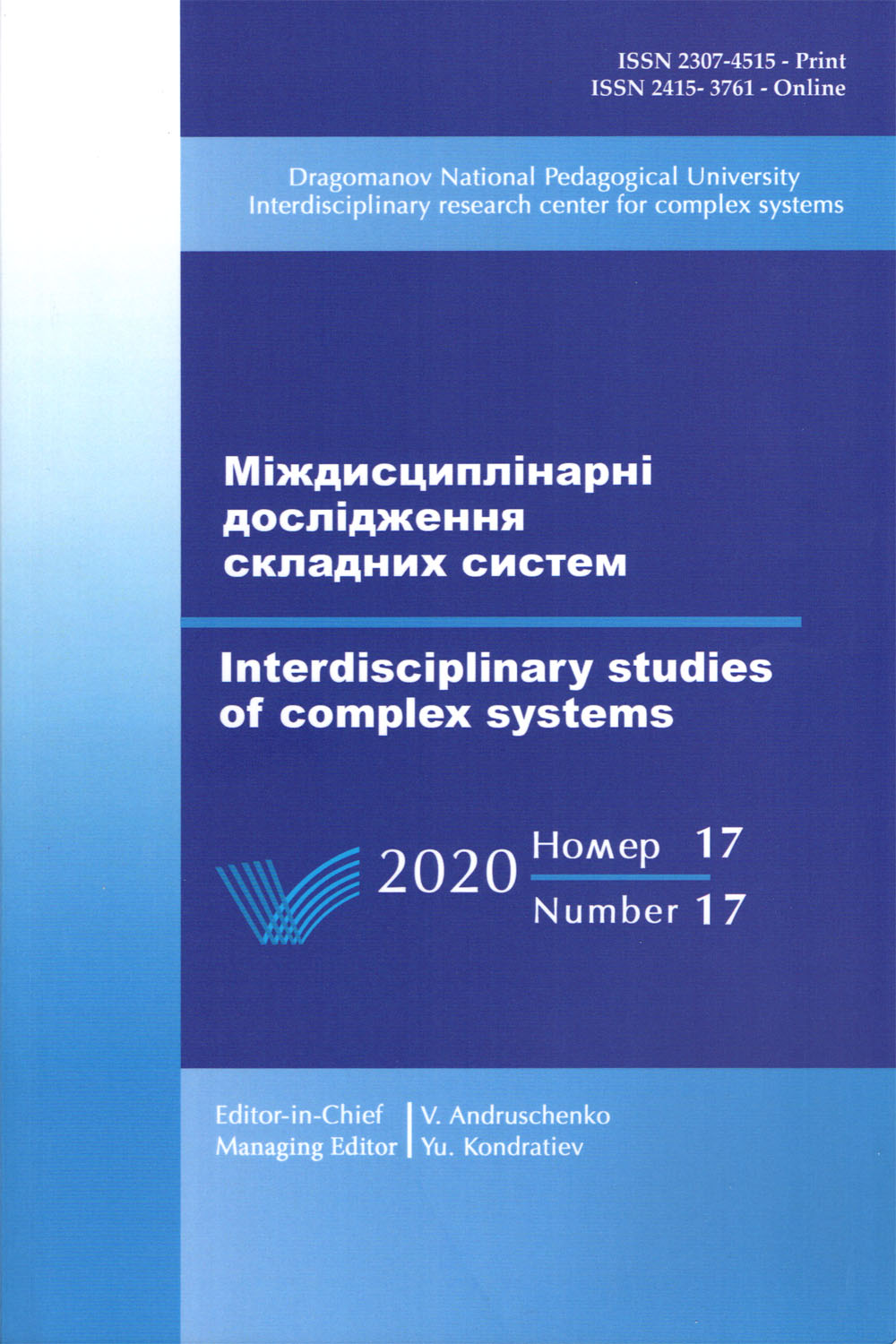Distance education in the context of visuality: pro and contra
DOI:
https://doi.org/10.31392/iscs.2020.17.014Ключові слова:
visual culture, distance learning, education, information tech-nologies, visual thinking, visual literacyАнотація
The paper analyzes the problem of implementing the achieve- ments of visual culture in distance education. The evolution of the dis- course of visual culture and its speci city in relation to visual studies, which perform special functions in cognition, language, education, art, science, religion, is shown. The main parameters of the relations between visual culture and distance learning as a natural result of the development of the information-digital age are determined. The e ciency of including visual presentations in the variety of their forms in distance learning is substantiated, it is proved that they carry a certain semantic load, make the subject material visible, generate various visual metaphors that form new images and visual schemes, and develop visual literacy.Посилання
Bataeva, E. V. 2013. Visible society. Theory and practice of social visualization: a monograph. Kharkiv: FLP Lysenko IB. [in Russian]
Ilyina, G. V. 2018. Genesis of the culture of thinking: logos, ratio, vision: monograph. Kyiv, Nizhyn: Publisher P. P. Lysenko M. M. [in Ukrainian]
Mikeshina, L. A. 2008. Philosophy of cogninion. Problems of epistemology of humanitarian knowledge. Moscow: Canon + ROOI Rehabilitation". [in Russian]
Rosin, V. M. 1996. Visual culture and perception. How a person sees and understands the world. Moscow: URSS Editorial. [in Russian]
Spivakovsky, V. M. 2011. Educational explosion. Kiev: Grand Expo. [in Russian]
Cherepovska N. 2014. Visual media culture: the development of critical thinking and creative perception. Kyiv: Millennium. [in Ukrainian]
Elkins, D. 2010. Exploring the visual world. Vilnius: EHU. [in Russian]
Bryson, N. 1988. The Gaze in the Expanded Field. Vision and Visuality; [Edited by Hal Foster]. Seattle: Bay Press.
Coursera. O cial site: https://coursera.org
Dikovitskaya, M. 2005. Visual Culture: The Study of the Visual after the Culture Turn. Massachusetts: MIT Press.
Elkins, J. 2003. Visual Studies. A Skeptical Introduction. New York: Routledge.
Godon, R. 1993. Understanding, Personal Identity and Education. Journal of Philosophy of College Press, Columbia University. Vol. 38, No. 4.
Jonas, H. 1954. The Nobility of Sight. Philosophy and Phenomenological Research. Vol. 14, No. 4.
##submission.downloads##
Опубліковано
Номер
Розділ
Ліцензія
Автори, які публікуються у цьому журналі, погоджуються з наступними умовами:- Автори залишають за собою право на авторство своєї роботи та передають журналу право першої публікації цієї роботи на умовах ліцензії Creative Commons Attribution License, котра дозволяє іншим особам вільно розповсюджувати опубліковану роботу з обов'язковим посиланням на авторів оригінальної роботи та першу публікацію роботи у цьому журналі.
- Автори мають право укладати самостійні додаткові угоди щодо неексклюзивного розповсюдження роботи у тому вигляді, в якому вона була опублікована цим журналом (наприклад, розміщувати роботу в електронному сховищі установи або публікувати у складі монографії), за умови збереження посилання на першу публікацію роботи у цьому журналі.
- Політика журналу дозволяє і заохочує розміщення авторами в мережі Інтернет (наприклад, у сховищах установ або на особистих веб-сайтах) рукопису роботи, як до подання цього рукопису до редакції, так і під час його редакційного опрацювання, оскільки це сприяє виникненню продуктивної наукової дискусії та позитивно позначається на оперативності та динаміці цитування опублікованої роботи (див. The Effect of Open Access).











